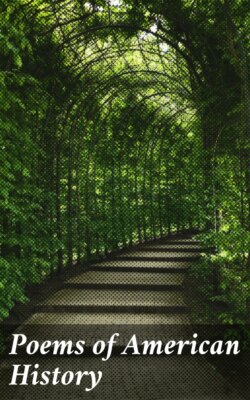Читать книгу Poems of American History - Группа авторов - Страница 19
На сайте Литреса книга снята с продажи.
CHAPTER VI
ОглавлениеTable of Contents
RELIGIOUS PERSECUTIONS IN NEW ENGLAND
The Puritans, who had come to New England to escape a religious despotism, lost no time in establishing one of their own. At the first meeting of the General Council, in the autumn of 1630, it was agreed that no one should be admitted to membership in the company who was not a member of some church approved by it, and a religious oligarchy was thus established which kept itself in power for over thirty years.
PROLOGUE
From "John Endicott"
To-night we strive to read, as we may best,
This city, like an ancient palimpsest;
And bring to light, upon the blotted page,
The mournful record of an earlier age,
That, pale and half effaced, lies hidden away
Beneath the fresher writing of to-day.
Rise, then, O buried city that hast been;
Rise up, rebuilded in the painted scene,
And let our curious eyes behold once more
The pointed gable and the pent-house door,
The meeting-house with leaden-latticed panes,
The narrow thoroughfares, the crooked lanes!
Rise, too, ye shapes and shadows of the Past,
Rise from your long-forgotten graves at last;
Let us behold your faces, let us hear The words ye uttered in those days of fear! Revisit your familiar haunts again,— The scenes of triumph, and the scenes of pain, And leave the footprints of your bleeding feet Once more upon the pavement of the street!
Nor let the Historian blame the Poet here,
If he perchance misdate the day or year,
And group events together, by his art,
That in the Chronicles lie far apart;
For as the double stars, though sundered far,
Seem to the naked eye a single star,
So facts of history, at a distance seen,
Into one common point of light convene.
"Why touch upon such themes?" perhaps some friend
May ask, incredulous; "and to what good end?
Why drag again into the light of day
The errors of an age long passed away?"
I answer: "For the lesson that they teach:
The tolerance of opinion and of speech.
Hope, Faith, and Charity remain,—these three;
And greatest of them all is Charity."
Let us remember, if these words be true,
That unto all men Charity is due;
Give what we ask; and pity, while we blame,
Lest we become copartners in the shame,
Lest we condemn, and yet ourselves partake,
And persecute the dead for conscience' sake.
Henry Wadsworth Longfellow.
One of the earliest to feel the displeasure of the ruling powers of the Colony was Roger Williams, who came to Boston in 1631. He made himself obnoxious to the government by denying the right of the magistrates to punish Sabbath breaking; and continued to occasion so much excitement that it was decided to send him back to England. Williams got wind of this, and took to the woods in January, 1636.
ROGER WILLIAMS
[January, 1636]
